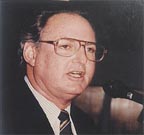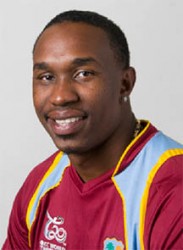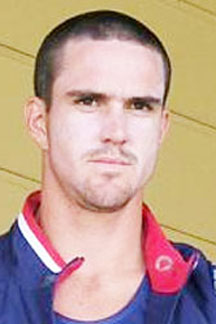By Tony Cozier
Except for the significant disparity in their ICC rankings, England and the West Indies start the first Test series of the year at the Sir Viv Richards Stadium in Antigua tomorrow with much in common.
England, below only South Africa and Australia on the Test table, regard the three, back-to-back matches as the certain chance to shake off the stigma of their habitually dismal performance in the preceding World Cup. They have been put on notice by Colin Graves, the incoming chairman of their board, that “there will be some enquiries” if they fail to beat what he describes as “mediocre” opponents.
The once mighty West Indies have propped up the ICC’s lists, above only Bangladesh and Zimbabwe, for the better part of two decades. A repeat of their hard-fought, 1-0 triumph the last time the teams met in the Caribbean six years earlier would be a timely boost in Phil Simmons’ debut as head coach.

Both boards, top heavy with directors with sparse cricket backgrounds, have often come under intense public criticism. Of the 16 on the West Indies Cricket Board (WICB), four have experience at first-class level; only Joel Garner has played Tests. There is a solitary former first-class player among the 14 on the England and Wales Cricket Board (ECB).
The 2015 Wisden Cricketers’ Almanack’s censure of the ECB’s “nexus of self-preservation” has been repeated several times over in relation to the WICB. Its contention that in 2014 “English cricket repeatedly lost touch with the basic idea that the national team belongs to us all,” could have been reproduced from any number of West Indian publications.
For each team, the shadows of absent high-profile players continue to hover.
Kevin Pietersen refuses to go away for England; if West Indians such as Chris Gayle, Sunil Narine and Dwayne Bravo are performing in the distant, simultaneous Indian Premier League (IPL), live television keeps them in the consciousness of a passionate public disenchanted by repeated failure.
There are other distractions.

The WICB is focused as much on persuading the Board of Control for Cricket in India (BCCI) to mitigate its claim for US$42 million compensation for the team’s early abandonment of the Indian tour last October over a contract dispute with its players as it is on the challenge against England. A delegation is likely to head to Delhi to plead its case midway through the series.
ECB’s sacking of its managing director, Paul Downton, last Tuesday less than a week before the first ball is bowled in Antigua equates to the WICB’s dismissal of head coach Ottis Gibson last August on the eve of the home series against Bangladesh.
Until Simmons’ appointment, assistant coach Stuart Williams stood in Gibson’s stead for seven months, through difficult assignments in South Africa and the World Cup; the ECB is unlikely to take as long to choose Downton’s replacement in a restructured role as “director of cricket”; former captains Michael Vaughan and Alec Stewart have already shown guarded interest.
Former England captain Mike Atherton, writing in The Times, believes that, by the shakeup, “the ECB has tacitly admitted that it thinks it has the wrong captain and coach in charge”. The England players might well have the same misgivings over their head coach, Peter Moores. Recalled by Downton last year for a second go at the job, he took much of the blame for the World Cup debacle.
Both teams revert to their settled Test captains. Denesh Ramdin is in his fourth series since succeeding Darren Sammy last June, Alistair Cook had led in his nine after Pietersen’s brief, contentious spell five years ago.
Reportedly still offended by his omission from the triangular ODI series in Australia and the subsequent World Cup, Cook would have taken some satisfaction from his hundred in the first of the two warm-up matches against a St. Kitts Invitation XI – but not much.

The exercise was all but meaningless. What prompted the WICB’s fixtures committee, if it was its decision, to offer as warm-up opponents for the visitors a component of the Leeward Islands, presently the weakest of the first-class teams, is unclear unless it was a ruse to lull England into a false sense of security.
The locals mustered 59 all out and 76 for seven and conceded 379 for six of whom Cook and Ian Bell retired out.
It was further embarrassment for West Indies cricket that has endured more than its fair share in its prolonged period of decline.
The upshot was that regulations for the second match were altered. Six England players were immediately transformed into Kittians to give the match an edge, bypassing the necessity of going through government’s citizenship by investment programme.
It left England with little to go by in determining their first Test 11. The West Indies had named a squad of 20 who, at the same time, were in Antigua training, practicing and observing Simmons’ methods for the first time since his move from eight rewarding years with Ireland.
Settling on their final 11s, selectors are likely to be guided by the success of spinners in the one match at the Test venue in the season’s Professional Cricket League (PCL) and in the West Indies squad’s internal two-day warm-up match on Thursday and Friday.
Devendra Bishoo, the little leg-spinner, followed his six for 82 for Guyana against the Leewards two months back with six for 56 on Thursday. Rakheem Cornwall, the ample 22-year-old collected seven for 96 in the PCL match, four for 50 alongside Bishoo on Thursday.
The temptation is compelling for West Indies to choose Bishoo, 29, whose last of his 11 Tests was four years ago, along with a second spinner Sulieman Benn and England to go for James Tredwell (one Test) and Adil Rashid (none); it is likely to be resisted by both in favour of balanced, more experienced attacks.
While England are uncertain over Cook’s opening partner (the returning Jonathan Trott or the first-timer Adam Lyth), Darren Bravo, the established No.3 with six hundreds and an average of 43.6 in his 32 Tests, and fast bowler Kemar Roach, the leading wicket-taker with 113 wickets in his 29 Tests, are certain to be in the West Indies 11.
There has been little time for them to get into shape. Bravo withdrew from the series in South Africa in December for “personal reasons” and has had no serious cricket since the Bangladesh series last September; Roach was eliminated after wrenching his ankle following 15.5 impressive overs in the first Test in South Africa and was clearly short of work in his 22 overs, for a solitary wicket, in three World Cup matches.
They, at least, need to be at their best for the West Indies to make it a contest that negates the ICC rankings.





